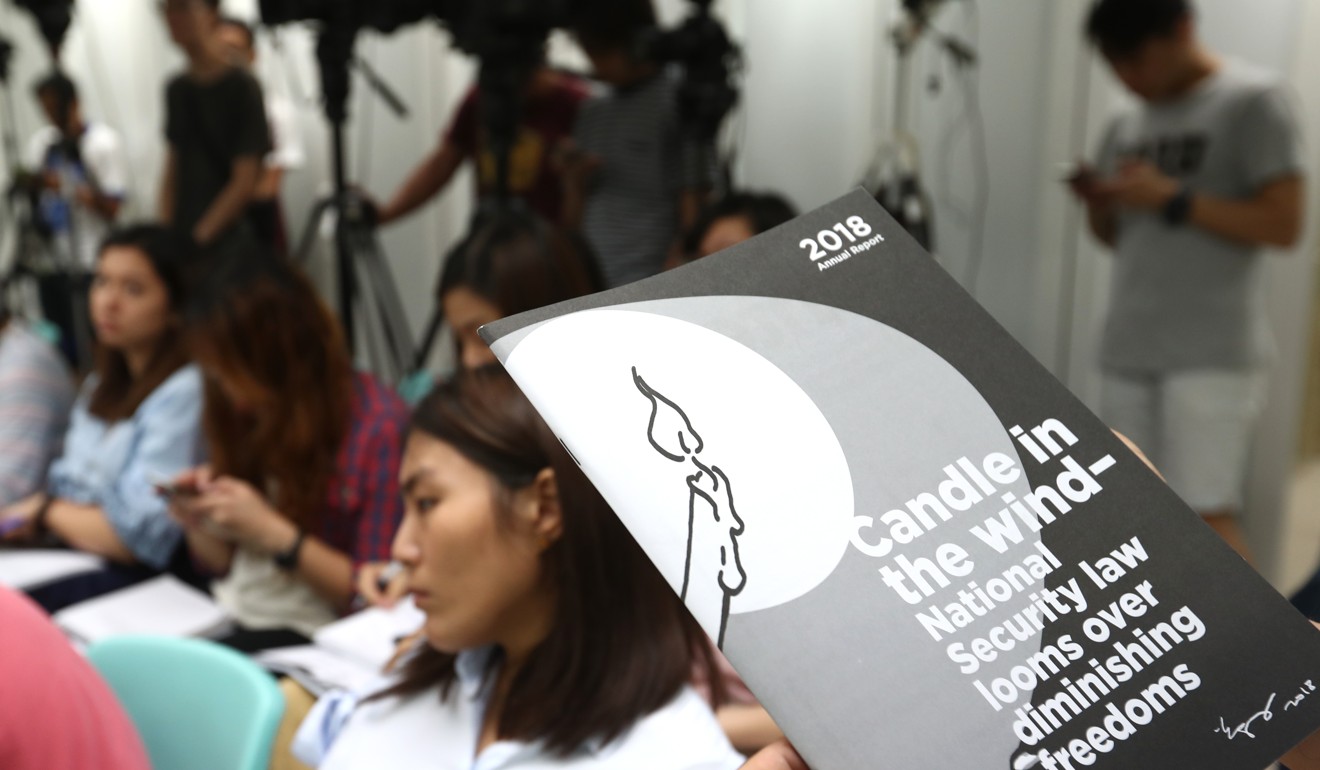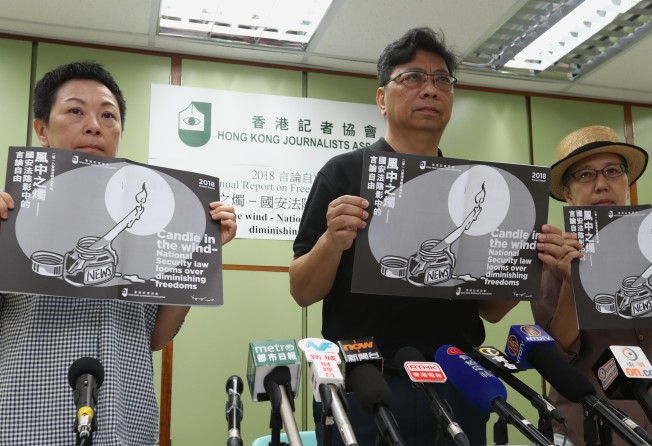
Police use of media interviews in National Party crackdown ‘casts a shadow’ over freedom of speech in Hong Kong, Journalists Association warns
Hong Kong Journalists Association says it is worried that by citing media interviews as evidence in pro-independence party clampdown, some media outlets may think twice before publishing

The Hong Kong Journalists Association warned on Sunday that the police force’s use of press interviews as evidence to crack down on a pro-independence political party could lead to media censorship.
The association’s chairman, Chris Yeung Kin-hing, also said Beijing’s emphasis of “one country” over “two systems” is a knife hanging over Hong Kong that hinders the city’s political development.
He was referring to the “one country, two systems” principle under which Hong Kong has a high degree of autonomy from Chinese rule.
“Freedom of speech in Hong Kong has tightened, which in turn has had an inevitable impact on the freedom of the press in the city,” Yeung said.

He made the remarks on Sunday as his association released a report called “Candle in the wind – national security law looms over diminishing freedom”. The report contains five chapters analysing freedom of the press and of speech in the city.
Earlier this month, police sought to ban the Hong Kong National Party, which has been advocating for independence for the city in the name of protecting national security.
While acknowledging the party had yet to resort to violence, Assistant Commissioner of Police Rebecca Lam Hiu-tong argued in documents that the possibility should not be ruled out and pre-emptive action should be taken.
Media interviews were cited as evidence in the document.
If you run massive coverage on this matter, will some people think you are advocating this?
Secretary for Security John Lee Ka-chiu has given the party an ultimatum to submit its case before early next month as to why he should not act on the police recommendation.
Yeung feared that media companies would reconsider whether they should run articles on the National Party in the future now that they know their articles could be used as evidence by the authorities.
“If you run massive coverage on this matter, will some people think you are advocating this?” Yeung asked. “The saga has cast a shadow over freedom of speech and freedom of the press in Hong Kong.”
The association called on the government not to enact a national security law, Article 23 of the Basic Law, the city’s mini-constitution, in the absence of local consensus. Critics have said the law would pose a threat to civil liberties.
“Now the Legislative Council is under the control of pro-establishment legislators,” the report noted, which would “enable Beijing officials to force through the enactment of the Basic Law Article 23”.
It also urged officials to enact a freedom of information law to give the public better access to government data.
The Hong Kong administration should also hold talks with mainland authorities on ways to protect the city’s reporters working across the border, the association added.
In its report, the association said while Chief Executive Carrie Lam Cheng Yuet-ngor had allowed digital media to cover government events, the administration had still not introduced mandatory archiving of important official records. By not requiring such archiving, the group added, officials had a free hand to get rid of sensitive documents.